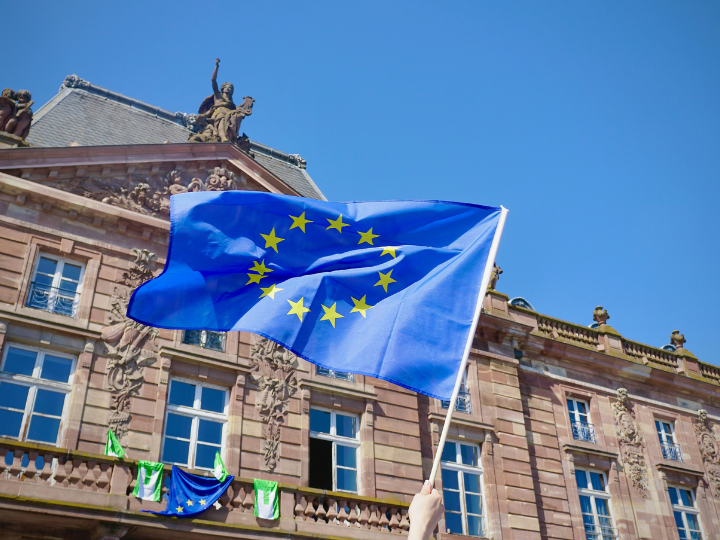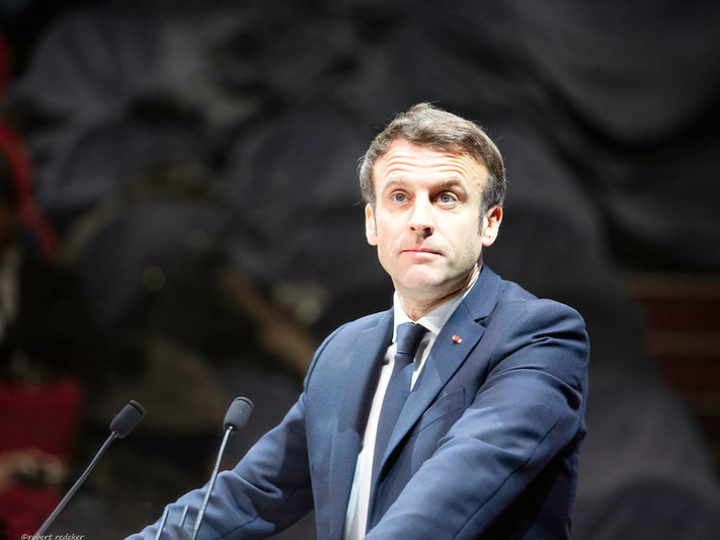by Rosa Balfour*
The precise date of the death of EU foreign policy is uncertain.
Perhaps it died in Gaza after October 7, 2023. The shambolic responses of EU and member states’ leaders in the days after Hamas’s terrorist attack on civilians in Israel revealed how profoundly and carelessly European countries had diverged from their decades-long semblance of unity on the Middle East Peace Process.
Upon reflection, October 7 was just another nail in the coffin of EU foreign policy. Perhaps one should look back to February 22, 2014, when the then president of Ukraine Viktor Yanukovich was ousted after months of Euromaidan protests. Russia responded by violating Ukraine’s sovereignty with the invasion of Donbas and the annexation of Crimea within the space of a month. European-led talks, policy responses, and sanctions aimed at ending the occupation of Donbas—and not reversing the annexation of Crimea—did not deter the Kremlin from invading Ukraine again exactly ten years later.
The failure to end energy dependence on Russia was perhaps Europe’s biggest strategic error. In the wake of the second invasion in 2022, a surprisingly united EU response, following Washington’s lead, was accompanied by a new assessment of Russia’s foreign policy goals. But as the war drags on, the splits have been resurfacing.
The EU did not take advantage of the unexpected unity to discuss its longer-term goals in supporting Ukraine beyond the promise to back it “as long as it takes.” The opportunity to address the logic of diversity that has plagued EU foreign policy since its birth was not seized. As October 7 showed, papering over differences does not work.
There have been many other events, too, marking the slow death of EU foreign policy.
2015 was an annus horribilis. Politics in Europe nearly imploded under the weight of the Eurozone crisis and the arrival of 1.3 million refugees from nearby conflict zones. Rather than managing a humanitarian crisis of significant scale, European leadership bought into a dystopian vision of a “migration crisis” reminiscent of medieval fears of barbaric invasions.
The decade of the Eurozone crisis saw the EU turn in on itself, away from the rest of the world, with ripple effects on the global economy. The union then tore itself apart with Brexit (2016—another annus horribilis).
The political implosion and the rise of populist Euroskeptic nationalism, which mainstream politics failed to prevent, had two consequences: an exaggerated influence of domestic politics on foreign policy and the disintegrating pull of centripetal forces. A narcissism of small differences dominated the EU throughout the 2010s—a feeble setup to confront the rise of hostile powers and a brittle geopolitical context.
EU foreign policy always was more of an ambition than a reality. It did achieve some successes after the end of the Cold War. While Brussels did not manage to prevent the wars of the 1990s in the Balkans, it did so in the 2000s, with the Ohrid Agreement in North Macedonia, the peaceful divorce of Serbia and Montenegro, and missions in Kosovo and Bosnia and Herzegovina. Offering these countries the prospect to join the club was behind the strength of these initiatives.
The original design of the EU’s 2004 neighborhood policy was to expand the area of peace and prosperity beyond the union’s borders. Today, after the so-called migration crisis, the logic is inverted: the EU exports its own weaknesses by demanding that third countries prevent migrants and refugees from reaching European shores at the expense of other interests—and myopically not addressing Europe’s own demographic and economic problems.
Examples go beyond the immediate backyard. The EU used to engage with the world, for instance by facilitating peace through unique civilian and military missions. Some were successful, for instance the monitoring mission in Aceh, Indonesia (unthinkable today!) and an anti-piracy naval mission in the Indian Ocean, Operation Atalanta. Brussels has rescued human rights defenders from dangerous situations, promoted the rule of law and multilateralism in international institutions, and even annoyed some autocrats with its language of principles.
The Middle East may have a different configuration had the United States not pulled out of the Joint Comprehensive Plan of Action with Iran, an initiative facilitated by European diplomacy. Maybe that plan could have altered the calculi behind Iran-Israel confrontation and the region today would not be on the brink of war. This would have been no small accomplishment given the nuclear escalation the world is facing now.
Past aspirations are long buried. Resurrecting EU foreign policy in the future would require a different political elite across Europe—one not captured by populism and progressively conquered by a nationalist radical right.
But this does not mean the EU is retiring from the world. The wars on Europe’s borders are the illustration that conflict catches up with the EU if the bloc turns its back.
Imagining the union’s place in the world demands a different mindset. The starting point is recognizing that the EU’s success as a project of integration has been tied to economic integration governed by shared rules. This should make it better equipped to address complex long-term challenges, for instance the transition to a green economy, than to navigate geopolitical upheaval.
The second consideration is the international context. The world is undergoing systemic change, with power shifting away from the West, a fragmenting globalization is bringing conflict into international relations, and international institutions and rules being overshadowed by a resurgence of state power. These shifts have as much to do with economics as with security—in fact, there is a new conflation of economic and security dynamics.
The third element to consider is that the strength of Europe is the attraction of its democratic systems.
To reconfigure the EU’s place in the world, the key may lie in leveraging its power as a democratic system of economic governance. The old ambitions that drove the post–Cold War era and inspired a generation of EU analysts, myself included, have run their course. RIP EU foreign policy.
*Director, Carnegie Europe
**first published in: Carnegieendowment.org




 By: N. Peter Kramer
By: N. Peter Kramer
